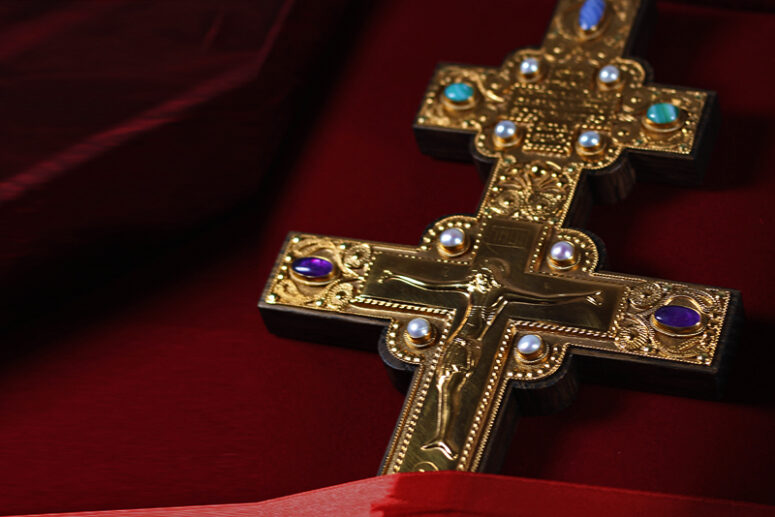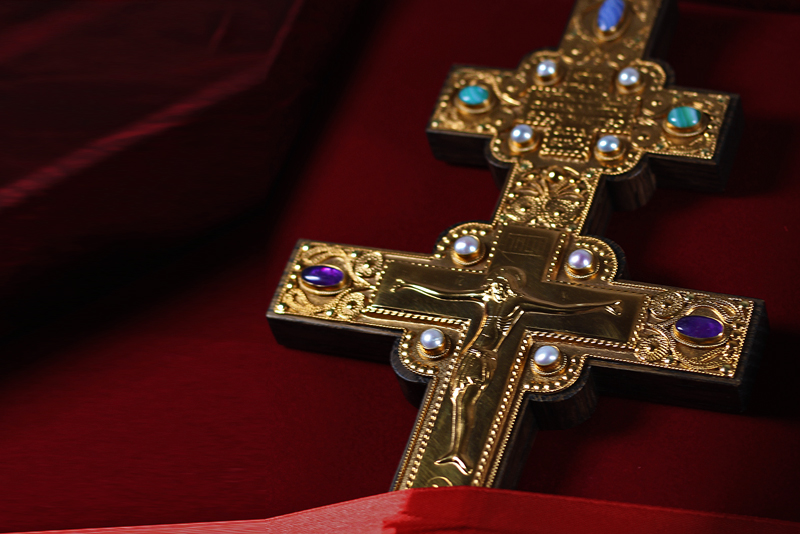
A word about the young man who added ten golden coins of his own as he was forging a cross for a patrician
There is no doubt that everything we sacrifice for God will come back a hundredfold in the life to come. For one thing, the Lord says to a rich young man, “go, sell your possessions and give to the poor, and you will have treasure in heaven” (Matthew 19, 21). The apostle James reveals the same truth in his words, “Mercy triumphs over judgement” (James 2:13). St Paul continues this chain of thought and testifies to, perhaps, the same thing, advising his disciple to instruct the rich that they should be prosperous in good deeds, so that they may inherit eternal life (1 Tim. 6, 17-19).
And yet here is another question: will God reward us in our present life for the sacrifices, made for Him? Can we hope that whatever we have given out will be returned to us also here, on earth? Will we be gratified in our mortal lives for what we have given to God? Let’s answer these questions with an example.
One young man, a sophisticated goldsmith, was particularly good at making churchware. A rich nobleman once called him and gave him a fair amount of gold ordering him to make a cross for the church. Returning home from the nobleman, the young man thought to himself, “A nobleman will receive a great reward from the Lord for donating such a large amount of gold. Why don’t I become a partaker of this reward together with him? I will add at least a little of my own gold to that cross and hope that God will accept my sacrifice just as he accepted two mites from the Gospel widow.” With these words he added ten golden coins towards the making of the cross.
When the cross was ready, the young goldsmith brought it to the nobleman. The latter placed the cross on the scales and found that it weighed more than the amount of gold that he had put in it. Suspecting the young man of theft, he said, “Why did you steal my gold and replaced it with some other metal?” “God, Who reads the heart of a human, knows that I have not appropriated any of your gold for myself. But I was jealous of the reward that will be given to you, and wished to be a partaker in it myself. Therefore, for my part, I’ve put in ten of my own golden coins in that cross, believing that God will accept them just as he accepted two mites of the Gospel widow.”
The nobleman was amazed to hear that and said to the young man, “Oh, my son, did you really do that?” “Aye, sir,” the young man answered, “as I told you, I did just that.” Then the nobleman exclaimed, “So, if you truly, out of love for God, gave Him your property, wishing to receive from Him together with me a share of the reward, then know that from this day on I am adopting you and making you the heir of all my property.” The nobleman did not hesitate to follow through with his words. The legend concludes that both he and the young man, having lived together in love and peace, received salvation.
That is to say, not only in the future life does the Lord return a hundredfold of what was given away in His glory, but also here, in our earthly lives He rewards the merciful and manifests over them the miracles of His mercy. There are more examples proving this truth than the one above. We know Tobit who made many sacrifices for God. For that, God freed his son from Asmodeus and gave him sight and, along with that, wealth and a quiet life. For God’s sake, the widow of Zarephath shared her last morsels with the prophet Elijah, and for that, in time of famine, he gave her a promise from the Lord that there would always be flour in her bin and oil in her jar until the rain came (1 Kings 17:16). Finally, David also says that he, having lived to old age, has not seen “the righteous forsaken, nor his seed begging bread” (Ps. 36: 25-26). These examples also seem to be compelling.
Concluding the above, we believe we have no further reason to be convincing you, brethren, of the above-mentioned truth. The only thing left in conclusion of this word is to wish with all our hearts that we would not spare giving our possessions to God, be merciful and compassionate to the unfortunate and wipe tears from widows’ and orphans’ faces, so that for our sacrifices and alms, the Lord would bless all our deeds in our present life (Deut. 15, 7-10), and accept us to His Kingdom in the age to come. Amen.
Translated by The Catalogue of Good Deeds
Source: https://azbyka.ru/otechnik/Viktor_Gurev/prolog-v-pouchenijah-na-kazhdyj-den-goda/5




